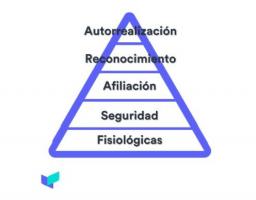How does a psychologist help us with post-traumatic stress?
Traumas are a sample of how memory is far from being a simple information file that can be expressed in words; We also internalize in the form of memories other mental contents that have nothing to do with rationality or with words, and which are basically feelings and emotions linked to the experience that we go through with anteriority.
And it is that post-traumatic stress teaches us what happens when that "emotional memory" is affected by psychopathologies, interfering with our quality of life even when we are not thinking about our past.
However, no one is condemned to resign themselves to suffering the consequences of these psychological changes; here we will see how psychologists work to help people with post-traumatic stress.
What is trauma and post-traumatic stress?
First of all, it is important to understand the basics of two phenomena that, although related, are not exactly the same: psychological trauma, on the one hand, and post-traumatic stress. Let's see what they consist of.
Psychological trauma is a psychopathological alteration that appears in some cases in which people
are forced to face experiences that generate high levels of anxiety and that in most cases they are of an abrupt and disruptive nature: car accidents, sexual abuse, the sudden death of a loved one, etc. Although many times these experiences are related to violence, it can happen that people become traumatized when going through situations in which they suffer some a more abstract form of discomfort that is not limited to a specific moment, but to more or less long periods (for example, living with a family member who suffers from a disease serious).In any case, what characterizes psychological trauma is that it produces a strong emotional impact on the person who suffers it, and this mark remains imprinted in the functioning of his nervous system, causing alterations in his emotional memory to cause problems in the rest of the processes psychological. For example, this leads to situations in which a daily experience activates the memory of the experience. that generates the trauma, causing the person to relive a good part of the emotional pain that felt.
On the other hand, if "trauma" (in the context of psychology) is the concept that refers to this general alteration in its latent state, we call post-traumatic stress the clearest manifestation of psychological trauma, which is reflected in a combination of symptoms linked to stress, anxiety and dissociation. Its most characteristic symptom is flashback, in which the person recalls the traumatic situation in a very vivid way or an exaggerated and even more disturbing version. of this, to the point that the experience of remembering and imagining overlap to the point that he cannot pay attention to anything else and loses control of what he is doing. does.
- Related article: "The 5 types of psychological trauma (and their treatment)"
How does a psychologist intervene to help someone who suffers from post-traumatic stress?
These are the main keys to psychological intervention for patients with this type of disorder:
1. Analysis of the cause of trauma and triggers of post-traumatic stress
In the first place, psychologists carry out a process of observing and analyzing the problem that has led the patient to seek help in therapy, to make hypotheses about possible solutions in a personalized way.
2. psychoeducation
Psychoeducation is based on informing the person about the disorder they are suffering, so that they have more knowledge about his experiences and dispel myths that may have been harming.
3. systematic desensitization
As its name suggests, systematic desensitization involves help the patient to stop being so sensitive to the mental contents that constitute the traumatic memory. To do this, they are assisted in sessions in which they recall part of those contents (following an ascending difficulty curve) and at the same time is exposed to relaxing stimuli, so that those memories stop being linked only to stress and distress.
- You may be interested in: "What is systematic desensitization and how does it work?"
4. Training in relaxation techniques
Relaxation techniques are a good help to keep anxiety levels lower and prevent the occurrence of post-traumatic stress attacks without falling into the trap of trying not to think about those memories.
5. cognitive restructuring
Through cognitive restructuring the person is helped to identify belief systems linked to psychopathology (in this case, the trauma) and to change them for other sets of beliefs from which to interpret reality in a more realistic way.
- Related article: "Cognitive schemes: how is our thinking organized?"
Do you need professional psychological assistance?
If you are suffering the consequences of a psychological trauma and you are looking for professional psychological assistance services to overcome it, contact me.
My name is Ignacio Garcia Vincent and I am a psychologist specializing in adult care. You can count on my help in face-to-face sessions or online by video call.

